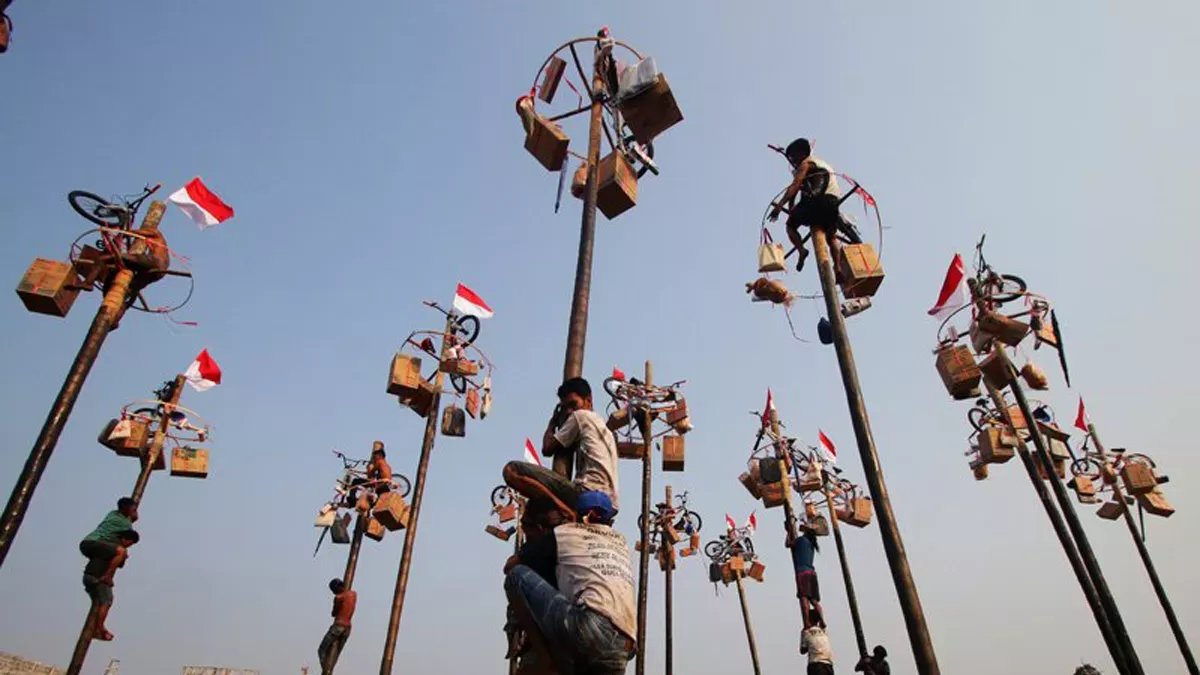Celebrating Indonesian Independence Day: A Deep Dive into Its Significance
Indonesia’s Independence Day, celebrated annually on August 17th, is a monumental occasion that marks the nation’s liberation from colonial rule in 1945. More than just a public holiday, it is a profound celebration of freedom, unity, and national pride.
A Glimpse into History
On August 17, 1945, Indonesia proclaimed its independence after over 300 years of Dutch colonialism, followed by a brief but intense period of Japanese occupation during World War II. This declaration, led by national heroes Sukarno and Mohammad Hatta, ignited a struggle culminating in Indonesia’s formal recognition as a sovereign nation. The bravery and sacrifices of those who fought for freedom are deeply ingrained in the national consciousness, making Independence Day a poignant reminder of their legacy.
Traditions and Celebrations
A series of vibrant and spirited events across the archipelago mark Indonesian Independence Day. Here are some key traditions:
1. Flag-Raising Ceremonies: The highlight of the day is the flag-raising ceremony, known as “Upacara Bendera,” conducted in schools, government offices, and public spaces. The main event takes place at the Merdeka Palace in Jakarta, where the President presides over the ceremony.
2. Parades and Cultural Performances: Parades featuring military personnel, students, and community groups are held in cities and towns. Traditional dances, music performances, and cultural displays showcase the rich diversity of Indonesia’s heritage.
3. Competitions and Games: Fun-filled activities, including sack races, tug-of-war, and panjat pinang (a traditional climbing competition), bring communities together in a spirit of camaraderie and joy.
4. Decorations and Festivities: Homes, streets, and public buildings are adorned with red and white decorations, the colors of the Indonesian flag. Special events, feasts, and gatherings foster a sense of unity and patriotism.
The Spirit of Independence
For Indonesians, Independence Day is a time to reflect on the nation’s journey and the values that underpin their identity. The day resonates with themes of resilience, determination, and the enduring spirit of “Bhinneka Tunggal Ika” (Unity in Diversity). It is a celebration of the myriad cultures, languages, and traditions that coexist harmoniously within the nation.
The Meaning to the People
Independence Day holds a profound significance for Indonesians. It is a day to honor the past, celebrate the present, and envision a future of continued progress and prosperity. The national holiday is a reminder of the hard-won freedom and the collective responsibility to preserve and cherish it.
For many, it is also a time for family gatherings, community bonding, and fostering a sense of national pride. The festivities provide an opportunity to educate younger generations about the importance of independence and the values of unity, tolerance, and mutual respect.
Looking Ahead
As Indonesia continues to evolve on the global stage, Independence Day serves as a beacon of hope and inspiration. It is a testament to the nation’s resilience and the enduring spirit of its people. Each celebration reaffirms the commitment to building a better, more inclusive future for all Indonesians.
Indonesian Independence Day is a vibrant celebration of freedom, unity, and national pride. It is a day that honors the past, embraces the present, and inspires hope for the future. As the red and white flags flutter in the breeze, they symbolize the enduring spirit of a nation that stands tall and proud, united in its diversity and rich heritage.








